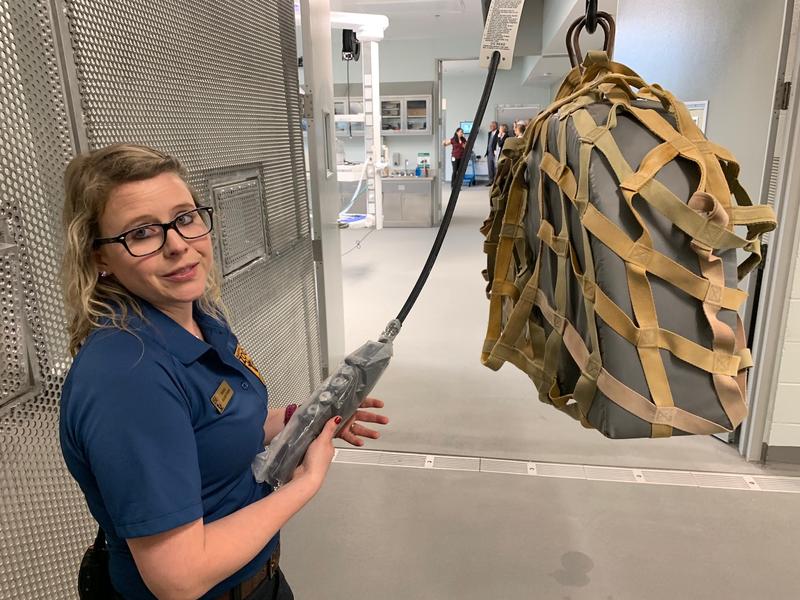
What has long been kept behind the scenes is now an attraction at the Nashville Zoo. A 20,000-square-foot healthcare facility has been built with the purpose of letting visitors observe routine checkups and even animal surgeries.
This facility sits at the very back of the zoo property. But it was designed for the public see,
as more zoos put veterinary care on display.
One side is full of wall-to-wall windows. They look into a neonatal nursery, an intensive care unit and a surgical suite big enough for a small giraffe — literally.
“We want to show the public the health care that we offer our patients, as well as we sometimes do procedures for conservation or for research,” Nashville Zoo veterinarian Margarita Woc Colburn says. “So it’s a way to educate the public of what we do here.”
The zoo plans to publicize some procedures ahead of time so visitors can plan to come see. A covered observation deck features tiered seating so as many as 200 people could witness a procedure. Cameras also provide close-up views that are displayed on monitors for the crowd.

This veterinary center replaces a 30-year-old facility. That building was not meant for visitors, and it was designed for the indigenous species formerly housed at Grassmere prior to the zoo’s relocation to the site — not the more exotic animals there now.
The old structure is too small for procedures on many animals. If a zebra needed care, ranging from a teeth cleaning to a surgical procedure, zoo staff had to lug equipment to its enclosure, says veterinary director Heather Robertson.
“Now, if we need to have colic surgery or something major, they can come here and actually have surgery in our new OR,” she says.

A 2-ton hoist mounted on a ceiling track can plop a sedated zebra on a reinforced surgical table.
New features also include a dedicated radiology space that’s lined with lead to reduce excess exposure, an incubation room for hatching eggs and a laboratory for processing blood work onsite.
Dorm rooms have also been added so staff can more easily stay overnight when needed and to house vets-in-training, who often have difficulty finding or affording a place to stay during rotations at the Nashville Zoo.
The $13 million complex, opening to the public in February, was funded by the Metro budget along
with private donors led by hospital giant HCA, representing the company’s first — and likely last — foray into animal hospitals.


